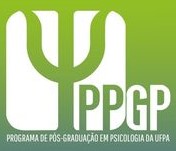Psychodanceas a Therapeutic Action
Experience report during the Covid-19 Pandemic
DOI:
https://doi.org/10.26823/nufen.v13i2.22472Keywords:
Keywords: Psychology; Dance; Coping; Pandemic;Abstract
The present experience report was constituted as an initiative that integrated actions of the Coping Committee Against COVID-19, from the Federal University of Amazonas. Its objective was to demonstrate the systematization of an online group activity, for coping the period of social withdrawal. For the feasibility of dance activities and conversation circles, applications and social networks were used, with synchronous and asynchronous moments, through video recordings with choreographies, dance lives via Instagram, and conversations circles through the Google Meet platform. UFAM students and staff participated, as well as external community, including people from other states. We use concepts from phenomenological-existential psychology.The dance experience went beyond physical exercise, minimized anxiety, worries and stress. It brought stories closer and enabled the construction of new affective bonds.
References
REFERÊNCIAS BIBLIOGRÁFICAS
Amatuzzi, Mauro Martins. (2009). Psicologia fenomenológica: uma aproximação teórica humanista. Estudos de Psicologia (Campinas), 26(1), 93-100. Recuperado em 28 de Março de 2021, de https://doi.org/10.1590/S0103-166X2009000100010
Armstrong, J,. Botton, A. (2014). Arte como terapia (1º ed.). (D. Bottmann, Trad.). Rio de Janeiro: Intrínseca.
Aquino, Estela M. L., Silveira, I. H., Pescarini, J. M., Aquino, R;, Souza-Filho, J. A., Rocha, A. S., Ferreira, A., Victor, A., Teixeira, C., Machado, D. B., Paixão, E., Alves, F. J. O., Pilecco, F., Menezes, G., Gabrielli, L., Leite, L., Almeida, M. C. C., Ortelan, N., Fernandes, Q. H. R. F., Ortiz, R. J. F., Palmeira, R. N., Pinto, E. P., Jr., Aragão, E., Souza, L. E. P. F., Barral, M., N., Teixeira, M. G., Barreto, M. L., Ichihara, M. Y., & Lima, R. T. R. S. (2020). Medidas de distanciamento social no controle da pandemia de COVID-19: potenciais impactos e desafios no Brasil. Ciência & Saúde Coletiva, 25(Suppl. 1), 2423-2446. Epub, 05 de Junho de 2020. https://dx.doi.org/10.1590/1413-81232020256.1.10502020
Barbosa, Márcio F. (1998). A noção de ser no mundo em Heidegger e sua aplicação na psicopatologia. Psicologia: Ciência e Profissão, 18(3), 2-13. https://doi.org/10.1590/S1414-98931998000300002
Cardinalli, Ida Elizabeth. (2015). Heidegger: o estudo dos fenômenos humanos baseados na existência humana como ser-aí (Dasein). Psicologia USP, 26(2), 249-258. Recuperado em 30 de Março de 2021, de https://doi.org/10.1590/0103-656420135013
Carmo, P. S. (2004). Merleau-Ponty: uma introdução. São Paulo: Educ.
Casanova, M. A.(2013). Heidegger e o escuro do existir: esboços para uma interpretação dos transtornos existenciais. In: Evangelista, Paulo Eduardo R. A. (Org.). Psicologia fenomenológico-existencial – Possibilidades da atitude clínica fenomenológica. (1ª ed.). Rio de Janeiro: Via Verita.
Castro, E. D. (2006)., Corporeidade e Saúde Mental: Experimentações em Terapia Ocupacional. In Arcuri, I. (Org.). Arteterapia de Corpo e Alma. São Paulo: Casa do Psicólogo.
Consani, C.F. (2020). A soberania dos Estados e os limites das instituições internacionais na pandemia do coronavírus. In Borges, M. de L., Reich, E., Xavier. R. C (Orgs). Reflexões sobre uma pandemia. Florianópolis, SC: Néfiponline. http://www.nefipo.ufsc.br/files/2012/11/LIVRO.-Reflex%C3%B5es-sobre-uma-pandemia-2020.pdf
Costa, L da C,. Goto, T.A,. Holanda, A.F. (2018). Fenomenologia transcendental e a psicologia fenomenológica de Edmund Husserl. Revista do NUFEN, 10(3), 38-54. http://pepsic.bvsalud.org/scielo.php?script=sci_arttext&pid=S2175-25912018000300004&lng=pt&nrm=iso
FORGHIERI, Y. C. (2002) Psicologia fenomenológica: fundamentos, método e pesquisa. São Paulo: Pioneira Thonson Learning.
Heidegger, M. (1988) Ser e tempo. Rio de Janeiro: Vozes.
Holanda, A. (1997). Fenomenologia, psicoterapia e psicologia humanista (v.14, n.2). São Paulo: Estudos de Psicologia.
Lima, Rossano Cabral. (2020). Distanciamento e isolamento sociais pela Covid-19 no Brasil: impactos na saúde mental. Physis: Revista de Saúde Coletiva, 30(2), e300214. Epub, 24 Julho, 2020.https://doi.org/10.1590/s0103-73312020300214
MARTINS, J. (2006). Estudos sobre existencialismo, fenomenologia e educação (1a ed.). São Paulo: Centauro.
NUNES, B. (2002) Heidegger & ser e tempo. Rio de Janeiro: Jorge Zahar Ed.
Silva, M. de L. (2009). A intencionalidade da consciência em Husserl. RAC-Eletrônica, 1(1), 45-53. Recuperado em 15 Março, 2021, de
http://anpad.org.br/periodicos/content/frame_base.php?revista=3
Stegmuller, W. (1997). Filosofia contemporânea: introdução crítica. São Paulo: EPU.
Stein, E. (2003). La Estructura de la Persona Humana. Madrid: Biblioteca de Autores Cristianos.
















